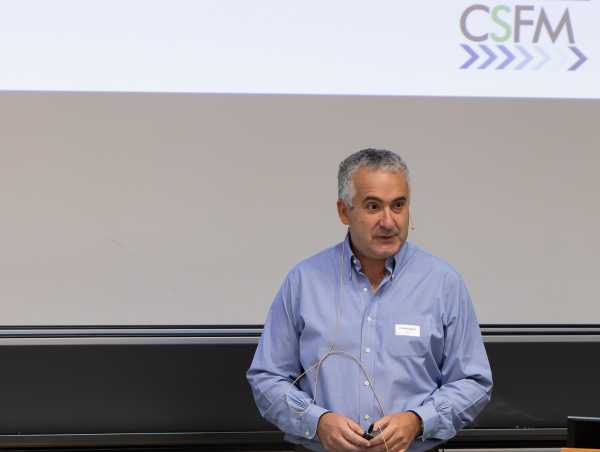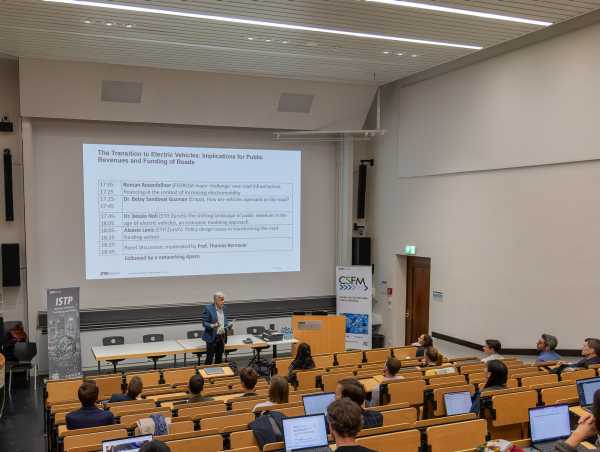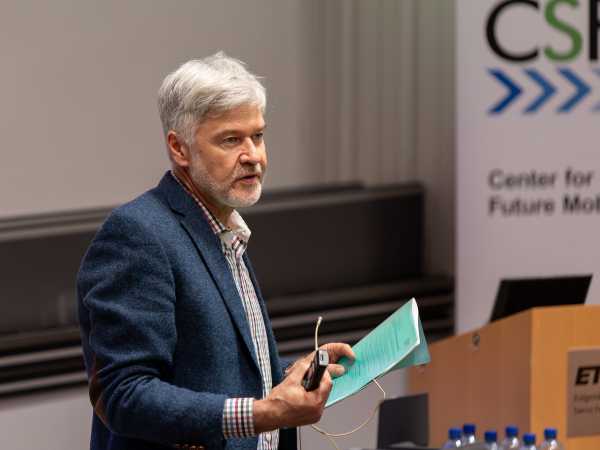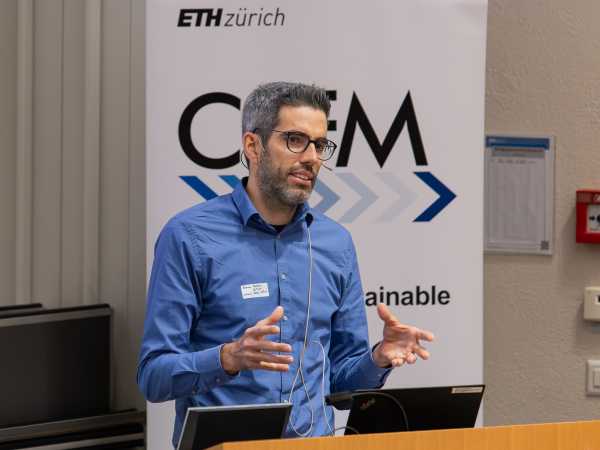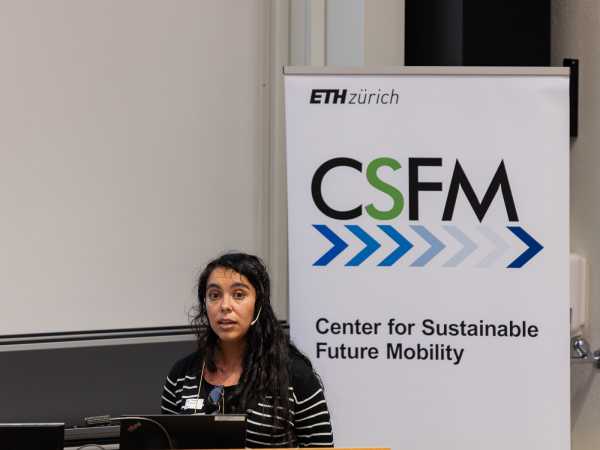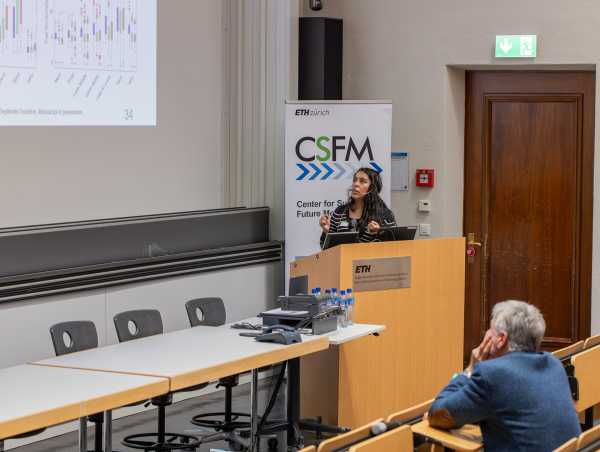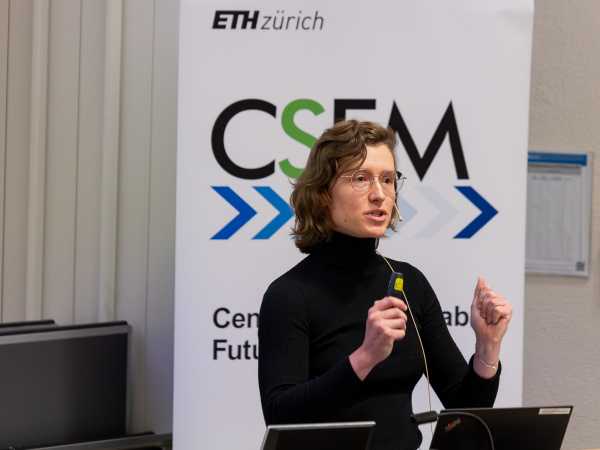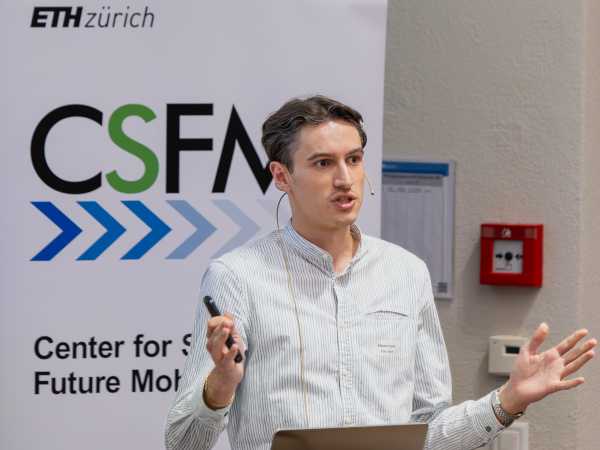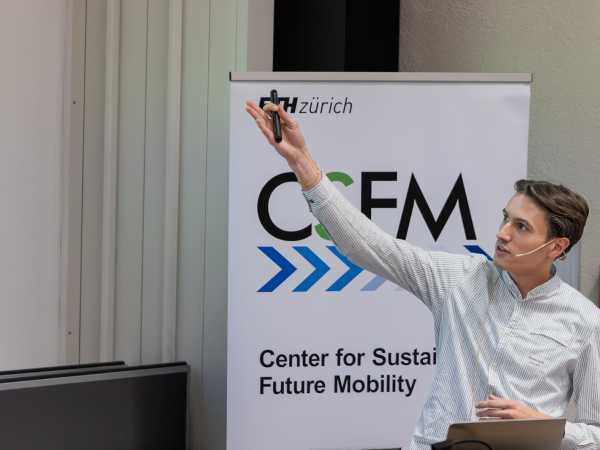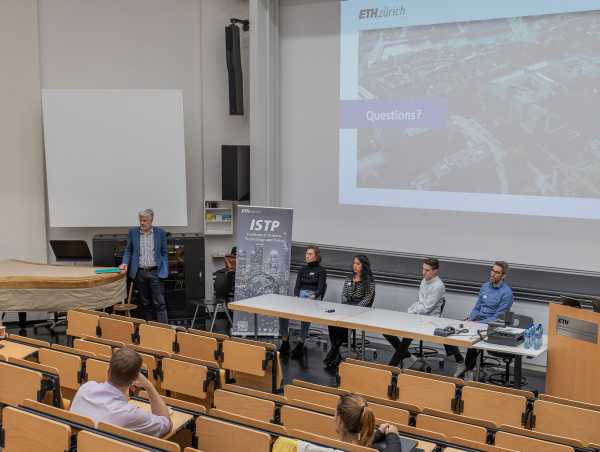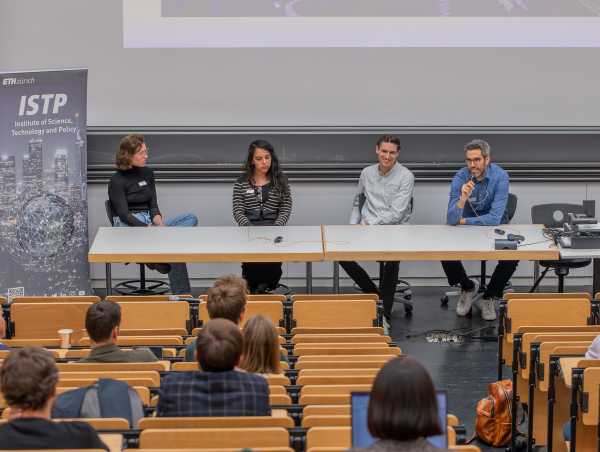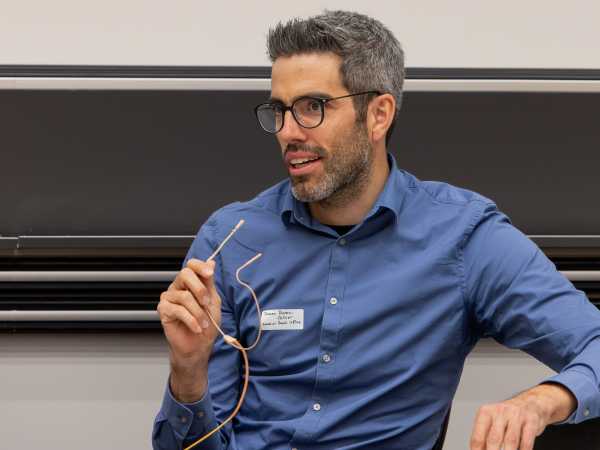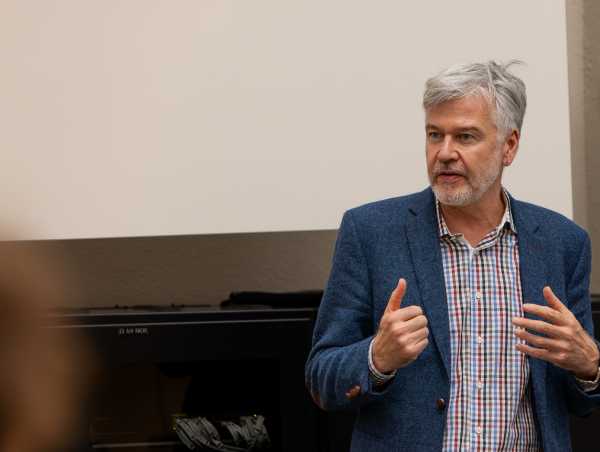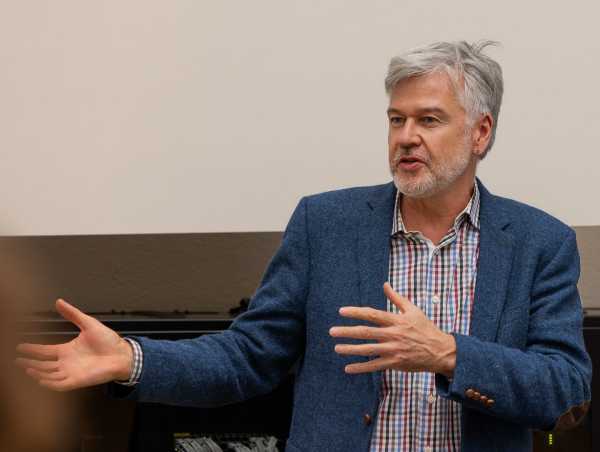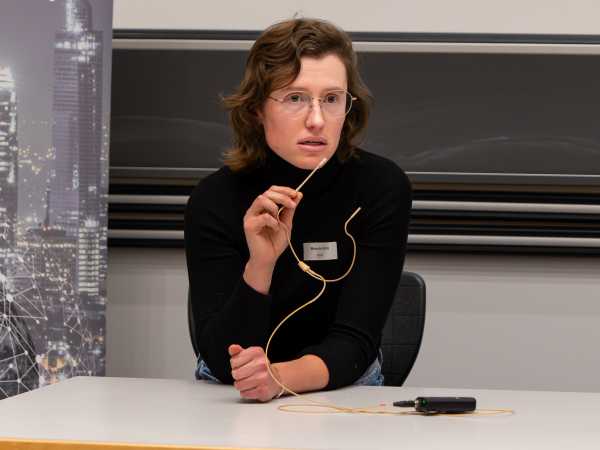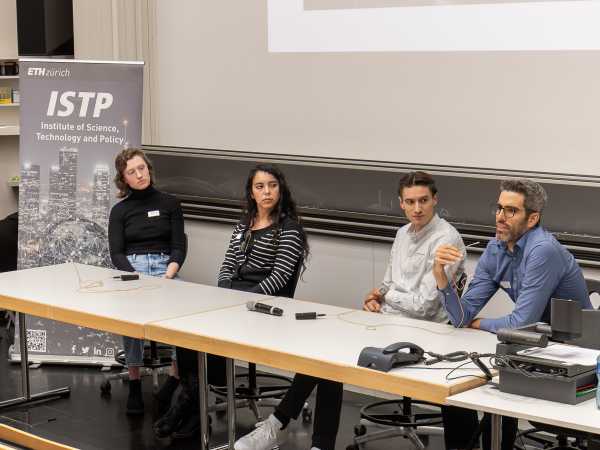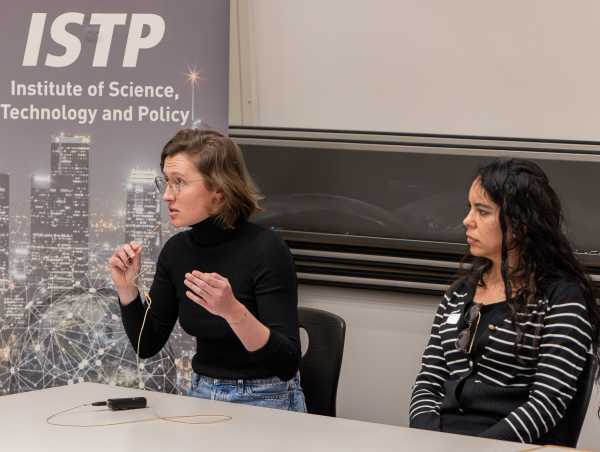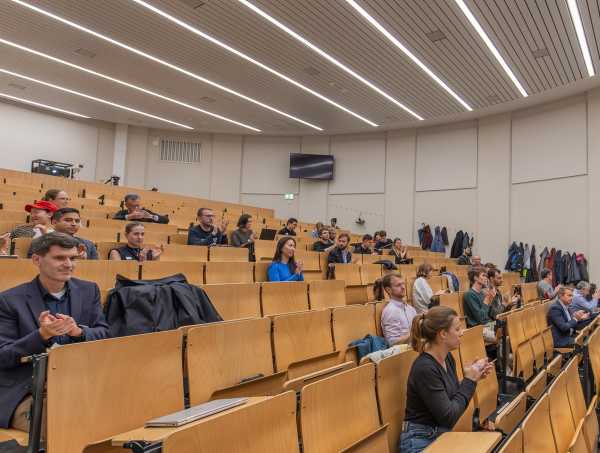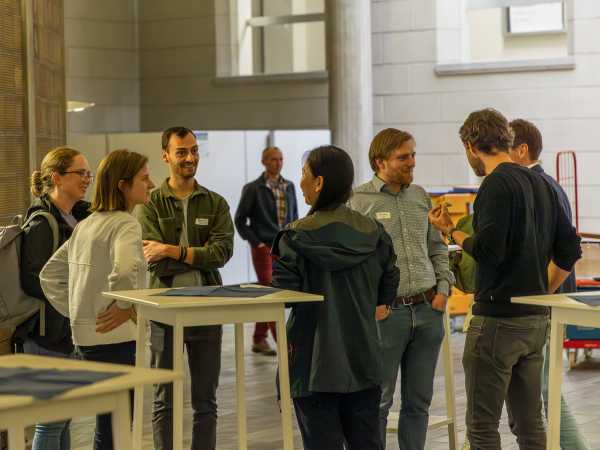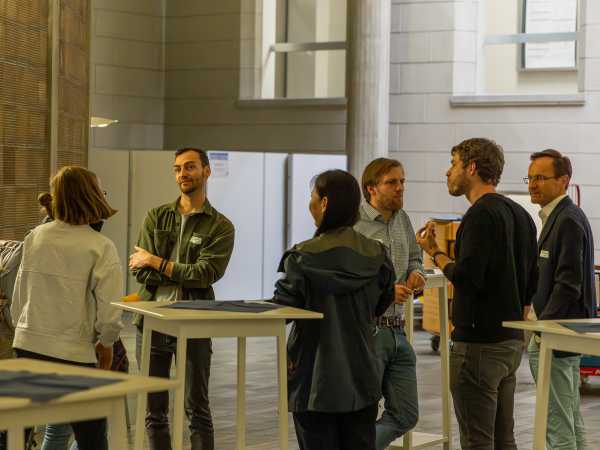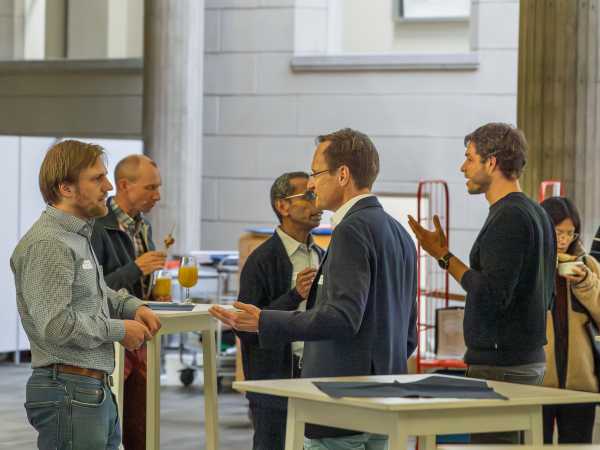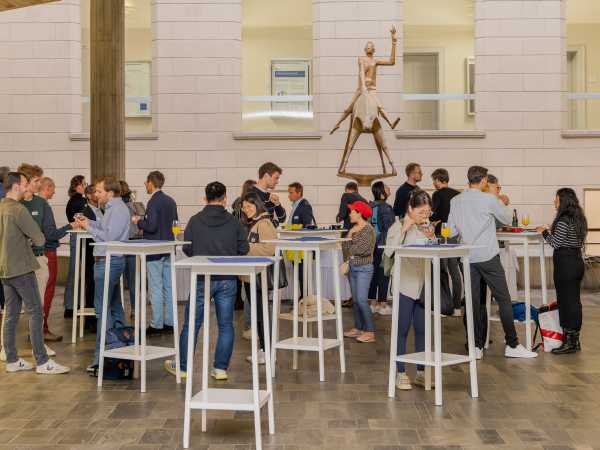The transition to electric vehicles: Implications for public revenues and funding of roads
CSFM Seminar co-organized together with the Institute of Science, Technology and Policy featuring Bessie Noll from the Energy and Technology Policy Group (EPG), Dr Betsy Sandoval Guzmán from the Vehicle Systems Group at Empa, Alessio Levis from the International Political Economy and Environmental Politics group (IPEEP), and Roman Rosenfellner from the Federal Roads Office (FEDRO).
About the seminar
The mineral oil tax generates billions in revenue, which are mainly used to finance road construction and maintenance. The gradual introduction of electric vehicles (EVs) in the Swiss fleet aims to mitigate the considerable CO2 emissions of the transport sector. This transition creates a significant funding gap in transport infrastructure. In this seminar we aimed to convey different perspectives which are also part of the research within the sustainable mobility community at the CSFM and which, in our opinion, should be part of the current dialogue and decision-making process.
Roman Rosenfellner from the Federal Roads Office presented the main pillars as well as the outstanding questions around the decision-making basis for a new financing model. The central element of this model is the replacement of mineral oil taxes by a distance-based charge. The controversial side effects of replacing mineral oil taxes, the different strategies of introduction and the technical and privacy issues associated with the recording of distance travelled are relevant aspects of the debate.
Betsy Sandoval Guzmán, from EMPA, provided evidence of possible disparities between actual energy consumption and linear pricing models, which typically consider indicators such as empty weight, engine power, and distance traveled. The methods presented are based on vehicle energy models and machine learning-based segmentation of passenger cars and have been successfully applied in several decarbonisation projects.
Bessie Noll of the Energy and Technology Policy Group (EPG) addressed how to balance the need for revenue with the urgency of accelerating the EV transition. Using techno-economic models of adoption, they conclude that distance-based taxation works better than purchase taxes and can help avoid substantial delays in the transition.
Finally, Alessio Levis from International Political Economy and Environmental Policy presented studies on public support and political feasibility assessment, as they are crucial to reach the goal of zero net emissions by 2050. In this respect, the Swiss Mobility Panel, currently in its 5th wave of surveys, provides a unique and high-quality basis to support the decision-making process.
The lively discussion revealed a high potential connection all this knowledge fields and improving the cooperation between research and the governmental institutions.
We thank the speakers and our moderator Thomas Bernauer as well as all the participant for a great event and look forward to meeting you soon in following seminars. Bellow some impression of the event and the presentations in case you want to revisit them. Enjoy browsing!
Downloads
- Download The shifting landscape of public revenues in the age of electric vehicles (PDF, 1.2 MB)
- Download A major challenge: New road infrastructure financing in the context of increasing electromobility (PDF, 1.9 MB)
- Download How are vehicles operated on the road? (PDF, 2.7 MB)
- Download Introducing a mileage tax for BEVs: Preferences for tariff systems and distance measurement (PDF, 1.8 MB)
Abstracts and short bios
The increasing prevalence of electric vehicles (EVs) presents challenges for transportation budgets as traditional revenue sources such as fuel taxes decline. While implementing EV taxes as an alternative solution offers practicality, it may also potentially hinder the transition. To address this issue, we examine the impact of various EV tax options on the transition. A framework is developed to evaluate taxation options, and a discrete-choice adoption model is applied to quantitatively illustrate the transitional effects of three types of EV tax interventions implemented with different timings across five global jurisdictions.
Bessie Noll is a PhD student in the Energy and Technology Policy Group (EPG). Her work focuses on forecasting future market shares of alternative drive vehicles in the mobility sector, but she is more broadly interested in the effects of policy intervention on the development of clean energy technologies and transitional outcomes of modern energy systems.
Energy and Technology Policy Group (EPG)
The research focus of the Energy and Technology Policy Group (EPG) concentrates on how policy, and its underlying politics affect the invention, innovation, and diffusion of new technology, and how technological change feeds back into the policy process.
At Empa's Automotive Powertrain Laboratory we aim to develop methods to characterize the operation of vehicles on the Swiss roads based on their technical specifications (size and power segment, powertrain technology) and their typical use (e.g. first/second- household vehicle). To this end, we have developed a machine-learning approach to segment vehicles (including 5 size classes, sports and multi-purpose vehicles) as well as a detailed energy consumption model for different vehicle types/powertrains. Our current focus is on developing an operational model based on vehicle tracking data. Combined, the above gives us a detailed understanding of the fleet, its operations and energy demand, which is crucial for, among many others, developing decarbonization strategies or operation-based taxation schemes.
Betsy Sandoval Guzman is a postdoctoral researcher at the Vehicle Systems group at Empa, where she is leading the development of an operational model for the Swiss vehicle fleet. She is a mechanical and electrical engineer from the University of Guadalajara, Mexico. She has extensive experience in collecting, analysing and modeling of operational and energy consumption data. Her research interests include big data, data analytics in energy consumption data, spatial-temporal techniques, and machine learning.
The Swiss Mobility Panel is a collaboration of the International Political Economy and Environmental Policy Group and the Institute for Transport Planning and Systems at the Institute of Science, Technology and Policy at ETH Zurich. The panel survey has been conducted since October 2020 and includes 4 Waves so far. In the upcoming survey experiment, we aim to investigate the policy preferences of the Swiss resident population on a new mileage tax for BEVs. More specifically, we run a conjoint analysis to assess how preferences for a future mileage tax for BEVs are shaped regarding (1) how the yearly travelled distance is measured and (2) how the tax rate is set. Further, we evaluate whether Swiss residents favour a tax cut for BEVs relative to ICEVs and how introducing such a mileage tax for BEVs changes consumers' intentions when buying a new car. We will summarize the aspects we are considering when planning this survey.
Alessio Levis is a PhD student in the International Political Economy and Environmental Politics group. The primary area of his research centres around the investigation of environmental attitudes, mobility behaviour, and the development of policy frameworks. He employs experimental inference techniques in large-N surveys conducted in Switzerland as well as various nations within the European Union.
Thomas Bernauer is a professor of political science at ETH Zurich. His research focuses on environmental policy and international trade issues, based on macro-level quantitative research, micro-level survey embedded experiments, and case study research and interaction with policy-makers and stakeholders.
The Swiss government has commissioned FEDRO to develop a concept to secure the long-term financing of transport infrastructure by 2030 at the latest. This talk will show why and will address main aspects of this concept:
- How the mineral oil tax (and possibly other transport levies) is to be supplemented or replaced by a mileage-based levy. What are the options?
- Where are the opportunities and risks? The presentation will show the Swiss thoughts and ongoing work and dare a look into the future.
Roman Rosenfellner obtained a Master of Science in Economics at the University of Berne. After working for a large Swiss energy company and as a consultant in the field of economic research and policy, he joined the Federal Roads Office in 2013. There he was involved in the development of the National Highways and Agglomeration Traffic Fund, which was finally introduced in 2018. He then led various projects in the area of road financing and mobility pricing. Of particular note is the development of the concept for the replacement of mineral oil taxes in the context of decarbonization. Currently he is leading the development of feasibility studies for mobility pricing pilot projects in various regions of Switzerland.
